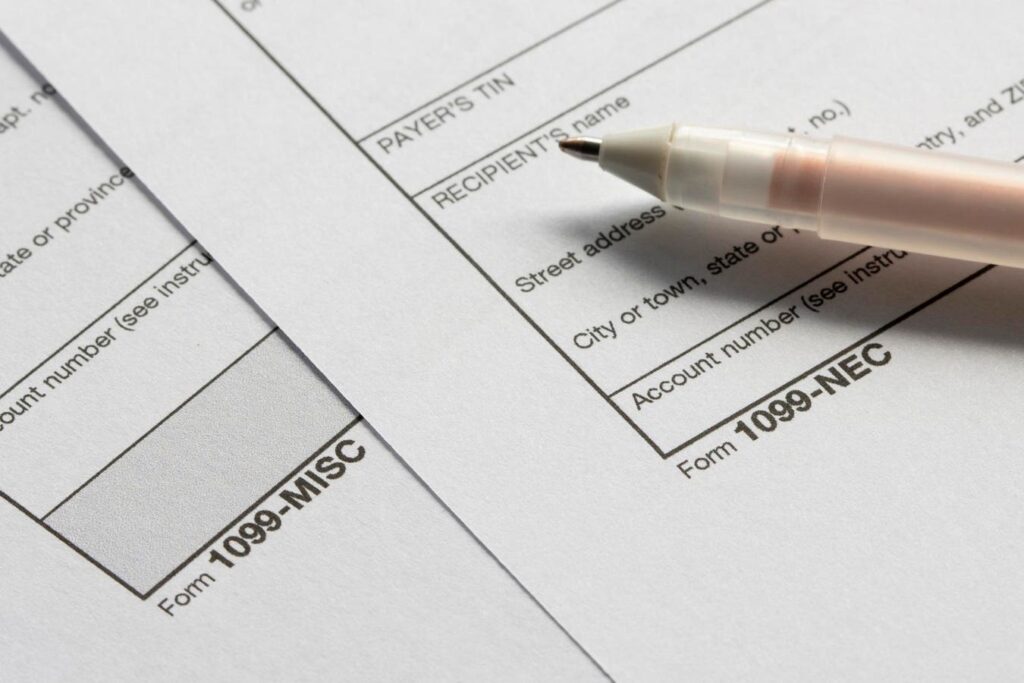IRS Forms 1099 are critical to the agency’s information return matching program, that makes tax reporting—and sending out tax notices to collect additional taxes—ever more automated. The IRS relies on Forms 1099s because they easily allow the matching of data against tax returns. Generally, businesses must issue the forms to any payee (other than a corporation) who receives $600 or more during the year. And that’s just the basic threshold rule; there are many, many exceptions. That’s why you probably get a Form 1099 for every bank account you have, even if you earned only $10 of interest income.
There are many varieties. There’s a 1099-INT for interest; 1099-DIV for dividends; 1099-G for state and local tax refunds and unemployment benefits; 1099-R for pensions and payouts from your individual retirement accounts; 1099-B for broker transactions and barter exchanges; 1099-S for real estate transactions, etc. In fact, there’s a dizzying array. There are many categories, but the Form 1099-MISC (for miscellaneous) seems to prompt the most questions and covers the biggest territory.
Businesses must send out Forms 1099 by Jan. 31 for the prior calendar year. However, don’t assume you’re off the hook for reporting income if you don’t receive a Form 1099 by February or even March. There are penalties on companies that issue 1099s late, but some come as late as April or May when you may have already filed your return.
Beware changed addresses. Even if an issuer has your old address, the information will be reported to the IRS (and your state tax authority) based on your Social Security Number. Make sure payers have your correct address so you get a copy. Update your address directly with payers, and put in a forwarding order at the U.S. Post Office. It’s also a good idea to file an IRS change of address Form 8822. The IRS explains how to notify IRS. Getting a transcript from the IRS is a useful way to double check your information. You can get a transcript online from the IRS, and it will show any IRS Forms 1099 issued under your Social Security Number.
You’ll want to see any forms the IRS sees. Each Form 1099 is matched to your Social Security number, so the IRS can easily spew out a tax bill if you fail to report one. If you don’t include the reported item you’re almost guaranteed an audit or at least a tax notice if you fail to report a Form 1099.
Report errors immediately. Any Form 1099 sent to you goes to the IRS too. Forms 1099 can be wrong, so check them carefully. Don’t just put arriving 1099s in a pile; open them immediately. If there’s an error tell the payer immediately. If the payer has already dispatched the incorrect form to the IRS, ask the payer to send in a corrected form. If you disagree with the information on the form but can’t convince the payer you’re right, explain it on your tax return. If you receive a Form 1099, you can’t just ignore it, because the IRS won’t.
Unfortunately, there are many judgment calls companies have to make when issuing Forms 1099. For example, most lawsuit settlements are reported, and in many cases the tax rules are not clear. If you settled a suit and received taxable damages, report the payment as income. But if you have arguments that the lawsuit recovery should not be taxable, the last thing you want is a Form 1099. Even so, if you have adequate suppor, you can explain the erroneous Form 1099 on your tax return. Some damages are tax-free under Section 104 of the tax code, but only physical injuries and physical sickness qualify. Receiving a Form 1099 can be especially worrisome, and with some lawsuit settlements, legal fees can’t be deducted even though the damages are taxable.
If you forget to report a Form 1099, the IRS will send you a computer-generated letter billing you for the taxes. If it’s correct, just pay it. Most states have an income tax, and they will receive the same information as the IRS. If you missed a 1099 on your federal return, your state will probably bill you too.
Keeping payers advised of your current address is a good idea, as is reporting errors to payers. However, if you don’t receive a Form 1099 you expect, don’t ask for it. If you are expecting a Form 1099, you know about the income, so just report that amount on your tax return. IRS computers have no problem with that. If you call or write the payer and raise the issue, you may end up with two of them, one issued in the ordinary course (even if it never got to you), and one issued because you called.
Read the full article here

